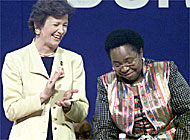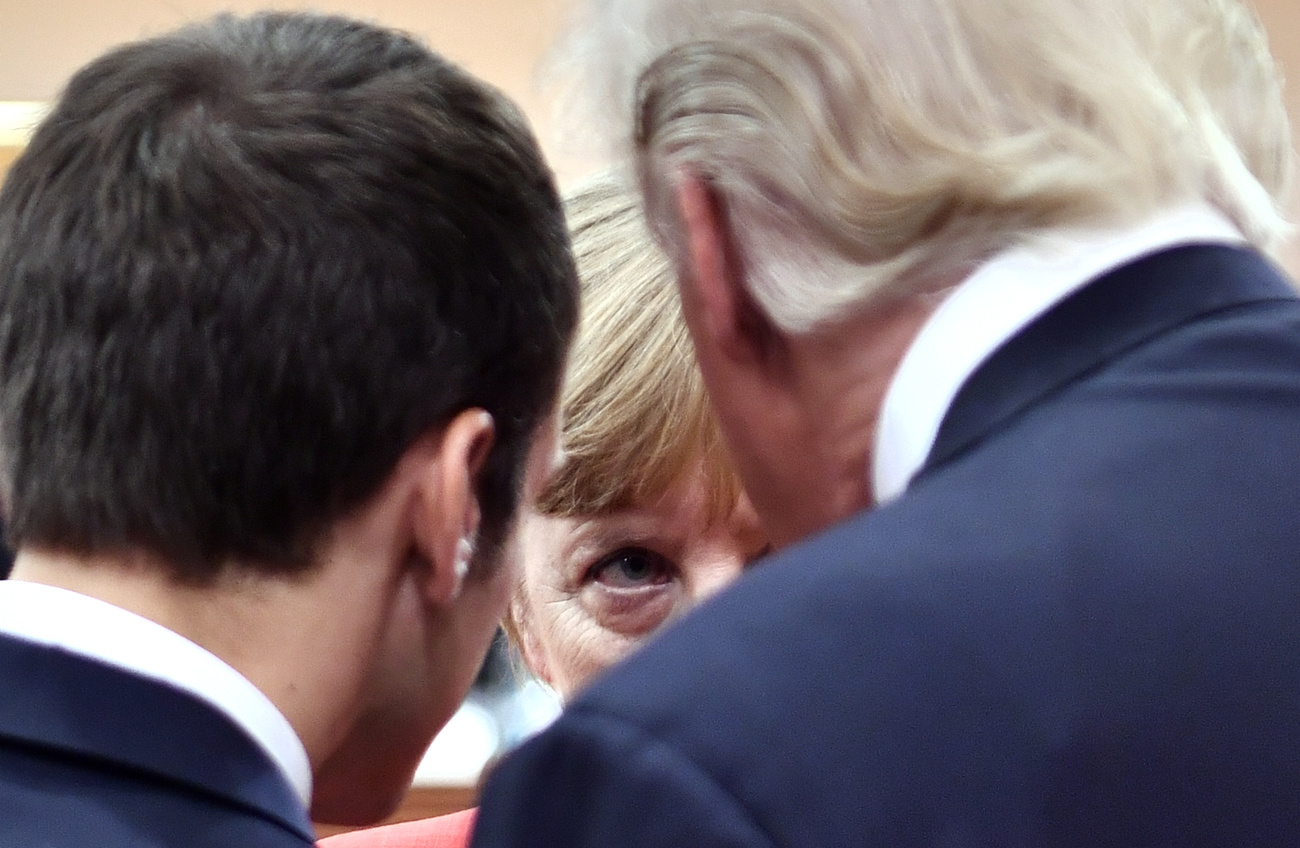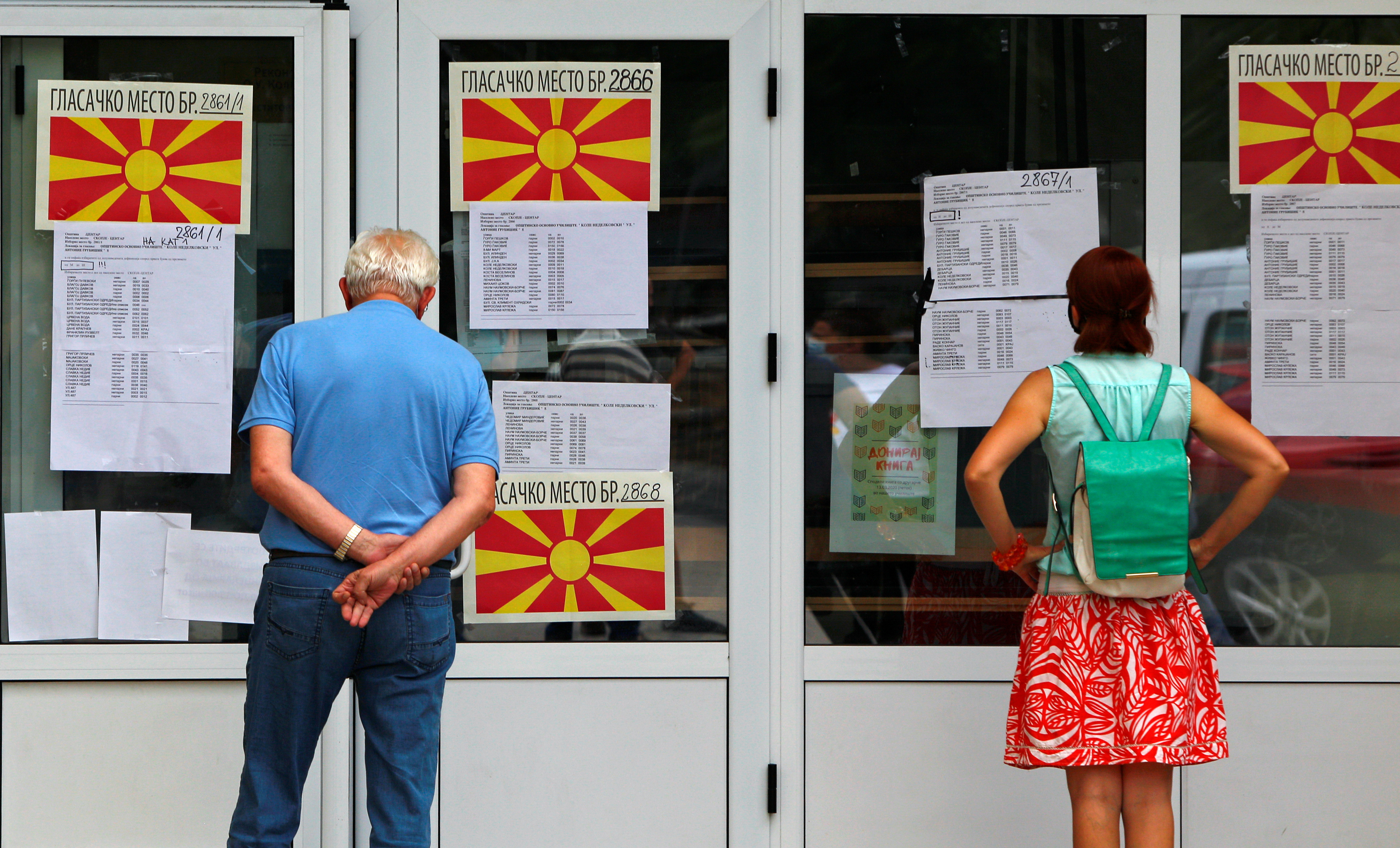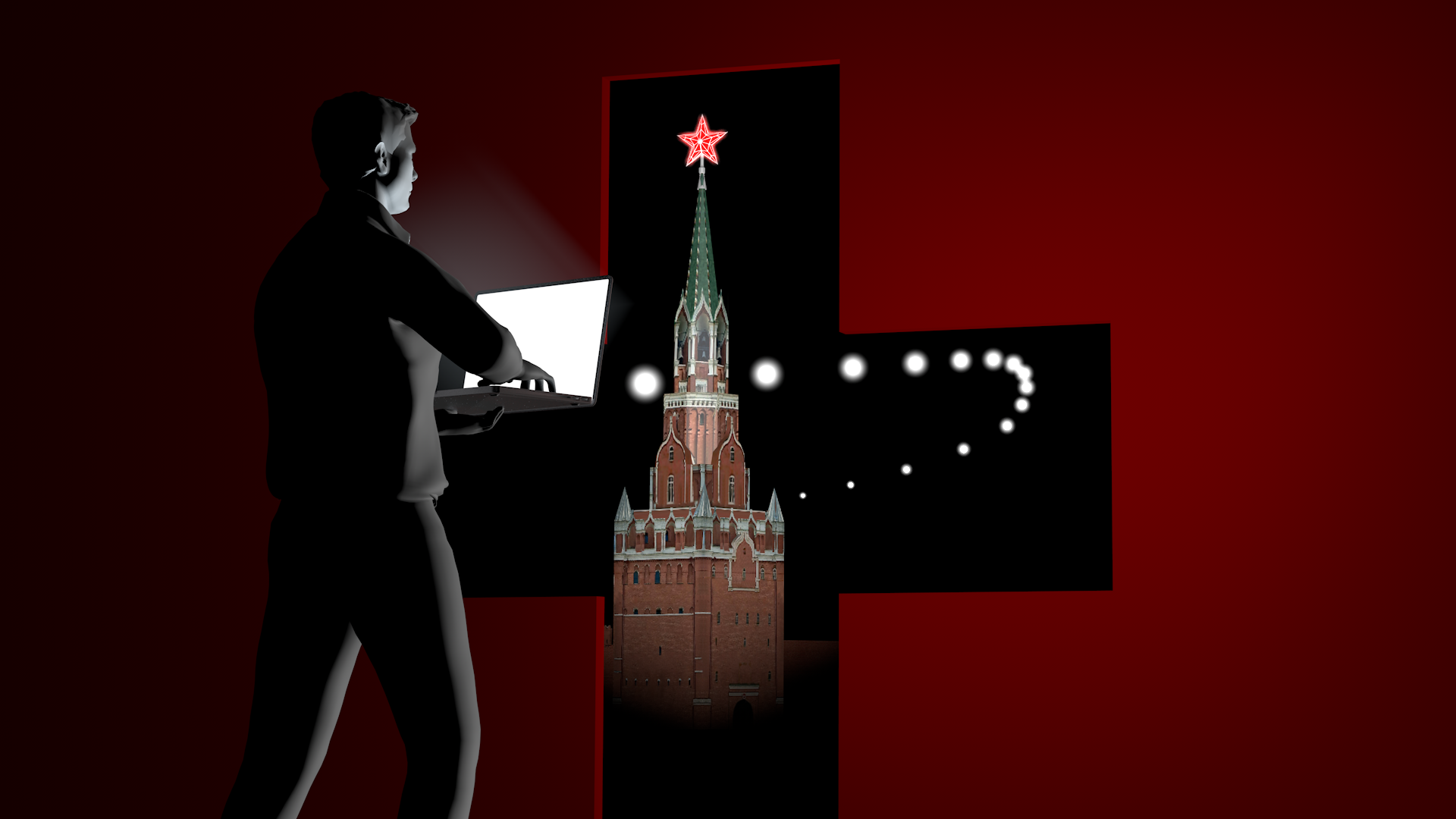
UN racism conference reaches last-minute accord

Delegates at the United Nations World Conference Against Racism in Durban, South Africa, have broken an impasse over how to refer to slavery and colonialism, and signed a global commitment to combat racism.
Disputes over the Middle East and demands that western governments apologise for colonial-era slave trading dogged the talks right up to the last minute of the conference.
But Claudia Kaufmann, who has headed the Swiss delegation in Durban since the conference opened on August 31, said she was “confident” that the documents would be good instruments for tackling racism on a global scale.
“Durban is an intermediary step in the battle against racism,” Kaufmann added, “but the work has only just begun.”
Kaufmann confirmed that propositions tabled by Switzerland, notably the issue of an international effort to combat racism on the Internet, had been included in the final declaration.
The week-long conference was the largest international gathering on racism ever held, but was beset by bickering even before it opened.
The final declaration adopted on Saturday recognises the injustice of slavery and colonialism, as well as the “plight” of Palestinians.
Arab states had sought to have Israel branded as a racist state, and to equate Zionism – the ideology of Israel – with racism. But the US president, George W Bush, condemned the draft text for “singling Israel out”, and withdrew the low-level American delegation from the conference on Monday.
Israel followed suit shortly afterwards.
Breakthrough achieved
As haggling continued past the scheduled end of the conference, a breakthrough was achieved. Muslim states said they would not block the compromise text, although it fell short of demands for a condemnation of Israel.
The other issue dogging the conference was African countries’ demands that the slave trade should be labelled a “crime against humanity” and countries where slaves were seized be paid reparations, as Jews were for the crimes of the Nazis.
The European Union blocked the inclusion of these demands in a final resolution, but at the last minute agreed to apologise for slavery and colonialism.
Despite the divisions, the UN High Commissioner for Human Rights, Mary Robinson, said it was a great achievement to get an agreement at all.
Switzerland, which has one of the largest foreign populations in Europe, hailed the conference as a step forward in the fight against discrimination.
“It was a learning experience to foster a better understanding of race as a political concept and we hope that victims are allowed to define what constitutes racism,” said Swiss delegate, Muriel Beck Kadima.
swissinfo with agencies

In compliance with the JTI standards
More: SWI swissinfo.ch certified by the Journalism Trust Initiative






































You can find an overview of ongoing debates with our journalists here . Please join us!
If you want to start a conversation about a topic raised in this article or want to report factual errors, email us at english@swissinfo.ch.